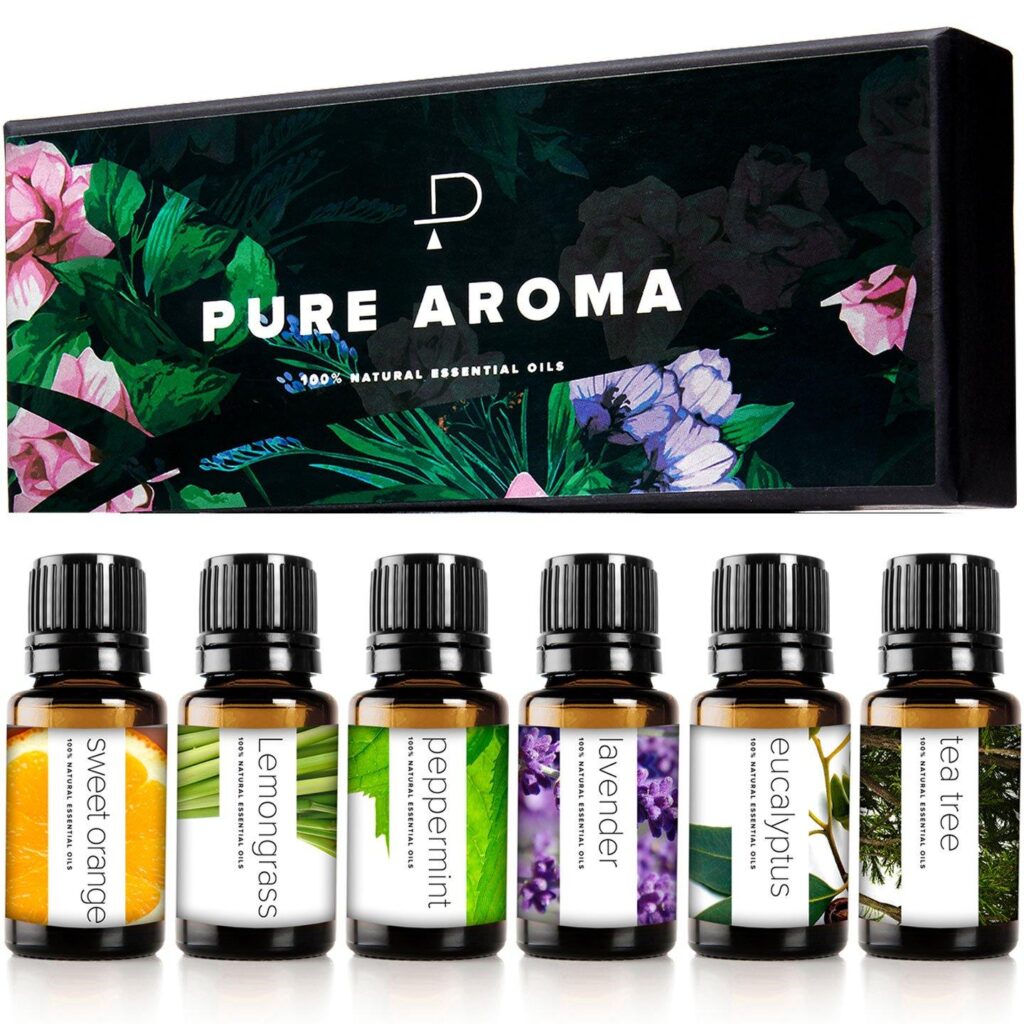In our fast-paced world, where stress and anxiety seem to be constants in our daily lives, finding effective ways to promote well-being is more vital than ever. Aromatherapy, the practice of using essential oils extracted from plants for therapeutic purposes, offers a holistic approach to healing that has been embraced for centuries. From soothing lavender to invigorating peppermint, the scents around us can have profound effects on our mood, physical health, and overall mental clarity. In this comprehensive guide, we’ll delve into the various benefits of aromatherapy, how it works, and practical ways to incorporate it into your daily routine. Join us as we explore the science behind these earthy fragrances and discover how they can enhance your wellness journey.
Table of Contents
- Understanding Aromatherapy and its Origins
- essential Oils: The Heart of Aromatherapy
- Techniques for Incorporating Aromatherapy into Daily Life
- Exploring the Therapeutic Benefits for Mind and Body
- Key Takeaways
Understanding Aromatherapy and Its Origins
Aromatherapy, a holistic healing practice, harnesses the power of essential oils derived from plants to promote physical and emotional well-being. This age-old technique can be traced back to ancient civilizations, where it was intertwined with rituals, medicine, and daily life. The earliest records of its use date back to Egyptians, who utilized essential oils for embalming, as well as in religious ceremonies. In addition, the Greeks and Romans embraced these fragrant extracts, integrating them into their therapeutic practices and luxuries alike, highlighting the deep-rooted recognition for the natural elements around them.
The science behind aromatherapy lies in its ability to influence the mind-body connection through scent. Essential oils engage with the olfactory system, triggering nuanced emotional and physiological responses. Various oils are celebrated for their distinctive properties, such as:
- Lavender: known for its calming and relaxing effects
- Peppermint: often used to invigorate and promote focus
- Eucalyptus: valued for its respiratory benefits
- Tea Tree: recognized for its antiseptic qualities
- Rose: celebrated for its uplifting and balancing effects on mood
Essential Oils: the Heart of Aromatherapy
At the core of aromatherapy lies essential oils, nature’s most potent extracts that harness the therapeutic properties of plants.These concentrated oils are derived from a variety of sources, including leaves, flowers, bark, and roots, each possessing unique benefits. When inhaled or applied topically, essential oils can invigorate the senses, promote relaxation, and stimulate the mind.The process of distillation preserves the natural essence, making these oils not onyl fragrant but also rich in healing capabilities.
Each essential oil has its own set of characteristics and benefits that can enhance physical and emotional well-being. Common essential oils and their uses include:
- Lavender: Calms the mind and helps with sleep.
- Peppermint: Energizes and improves focus.
- Eucalyptus: Supports respiratory health and relieves congestion.
- Tea Tree: Antimicrobial properties that aid in skincare.
- Lemon: Uplifting scent that purifies and refreshing.
Incorporating these essential oils into a daily routine can lead to holistic healing experiences, transforming moods and even physical ailments with just a few drops. Whether used in a diffuser, added to a bath, or combined with carrier oils for massage, the versatility of essential oils makes them a cornerstone in the practice of aromatherapy.
Techniques for Incorporating Aromatherapy into Daily Life
Aromatherapy can easily blend into your daily rituals,enhancing your overall well-being. Start by diffusing essential oils in your home. Choose calming scents like lavender or eucalyptus to create a peaceful atmosphere, especially in the evening. You can also add a few drops of your favorite oil to a warm bath for a luxurious self-care experience. To make it more personal, consider making your own aromatherapy roller blends by mixing carrier oils with essential oils that cater to your specific needs, be it relaxation, energy, or focus.
Incorporating aromatherapy into your workspace can also boost productivity. Keep a personal inhaler or aromatherapy oil on your desk for rapid mood-lifting sessions during the day. Scents like lemon or peppermint can stimulate your mind and keep you alert during tasks. Additionally, you might explore aromatherapy necklaces or bracelets that allow you to wear your favorite essential oils and enjoy their benefits throughout your busy day. Creating an surroundings that encourages mindfulness and relaxation is key to reaping the full benefits of aromatherapy.
Exploring the Therapeutic Benefits for Mind and body
Aromatherapy harnesses the potency of essential oils to foster a sense of well-being, seamlessly blending with our physical and mental landscapes. Each aromatic compound brings forth unique therapeutic properties that can enhance mood, alleviate stress, and rejuvenate the spirit. for those seeking harmony in their lives, the benefits are profound:
- Stress Relief: Essential oils like lavender and chamomile reduce cortisol levels, promoting calm and relaxation.
- Enhanced Focus: Citrus oils, such as lemon and grapefruit, invigorate the mind, sharpening concentration and boosting productivity.
- better Sleep: oils like bergamot and cedarwood can create a soothing environment,improving sleep quality and duration.
- Pain Management: Peppermint and eucalyptus oils can relieve headaches and body aches, serving as natural analgesics.
Beyond the physical realm, aromatherapy offers emotional and spiritual benefits, serving as a gentle reminder to connect with ourselves. The practice can be customized to individual needs, allowing for a personalized path to wellness. Consider these emotional influences:
- Boosted Mood: Uplifting oils like rosemary and sweet orange enhance positivity and combat feelings of anxiety.
- Emotional Balance: Frankincense and ylang-ylang can foster inner peace,grounding the spirit during turbulent times.
- Mindfulness: The intentional use of scents in meditation can anchor the mind, deepening the practice and enriching personal reflection.
Key Takeaways
As we wrap up our exploration of the healing benefits of aromatherapy, it’s clear that this holistic practice offers a myriad of options for enhancing both physical and emotional well-being. From soothing stress and anxiety to alleviating physical discomfort, the power of essential oils can be a valuable addition to any wellness routine.
Whether you’re a seasoned practitioner or just starting your journey, the key is to approach aromatherapy with an open mind and a willingness to experiment. Remember that individual responses to scents can vary, so it’s important to discover what works best for you.
We encourage you to take the next step—perhaps by blending your own essential oils or incorporating them into your daily rituals. As you embark on this aromatic journey, may you find peace, healing, and a deeper connection to your senses.
Thank you for joining us in this comprehensive guide. If you have any experiences or tips to share, feel free to leave a comment below. Happy exploring!







